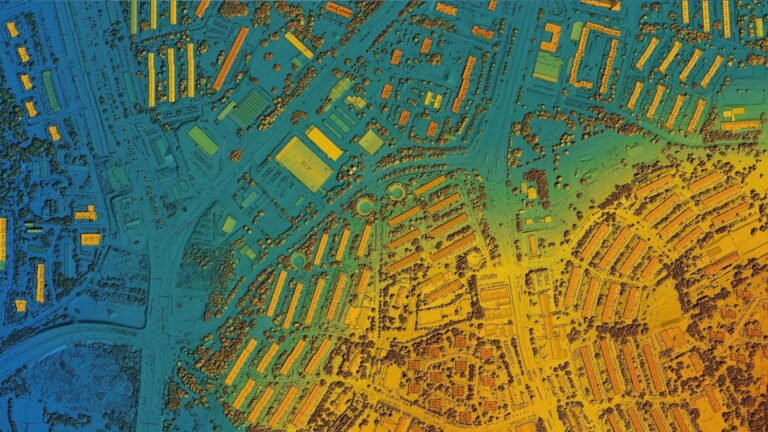
Summary :
- A vegan diet, consisting of no animal-based foods, produces only 0.7 kg of carbon dioxide for every 1,000 calories ingested.
- Using data from over 16,000 adult eating patterns gathered by the CDC’s National Health and Nutrition Examination Survey, the research positioned vegetarian and pescatarian diets as the second best alternatives following vegan diets.
- According to the findings, if one-third of individuals on omnivore diets switched to a vegetarian diet, it would result in eliminating the equivalent of 340 million passenger vehicle miles on average each day.
In Facts
In the previous year, a groundbreaking study analyzed the carbon footprints of six popular diets.
It is widely recognized that approximately a third of greenhouse gas emissions originate from the food system, with beef production being one of the primary offenders – releasing about 10 times more gases than chicken.
Although the environmental impact of various food items is widely debated, there has been less investigation into how diverse diets made up of many types of foods stack up against one another.
Also Read :
- Is Methane Potential Cause Greenhouse Effect after Carbon?
- China Plans to Cut Out Carbon Dioxide (CO2) on 2035
What Professor Said?
“Climate change is arguably one of the most urgent issues we face today, and many individuals are keen on adopting a plant-based diet,” stated Professor Diego Rose, the lead author of the Tulane University research that also evaluates the nutritional quality of various diets.

“The nutrition program director at Tulane University School of Public Health and Tropical Medicine stated that this would lower your footprint and promote overall health.” However, the study indicates that “there’s a method to enhance your health and reduce your impact without completely eliminating meat.”
As numerous individuals may change their dietary paths during their lifetimes—or have to move away from veganism for health concerns—it can be comforting to recognize that our diets exist on a spectrum in terms of their effect on the climate.
If you’re looking to reduce meat consumption while also wanting to increase muscle strength, you’re in good company.
After our piece on foods that support strength, many of you replied to our request, sharing that you’re working on increasing protein intake through a plant-based diet.
Numerous individuals do not realize the connection between diet and climate, yet among those who do, there is an openness to adapt. And, regarding which modifications are advantageous, “we genuinely aim to simplify these as much as we can so individuals can truly alter their diet,” Auclair states.
Diet Swap Can Cut the Carbon Footprint & Boost Longevity
Regarding healthspan and longevity, Auclair and her team at McGill University analyzed survey data to assess Canadians’ eating patterns and simulated the potential outcomes of dietary changes. They employed models to predict alterations in life expectancy, utilizing Canadian mortality statistics and the relative risks of illnesses linked to animal-derived and plant-derived foods, which were evaluated in the Global Burden of Disease research.
The results align with additional studies. Last month, researchers from Tufts University released a study indicating that individuals who ingested a lot of plant protein during mid-life had considerably greater chances of aging healthily – further proof that what benefits our wellbeing also benefits the environment.
Which diet exerts the largest climate influence?
It might not be shocking to find out which type of food intake is optimal. A vegan diet, consisting of no animal-based foods, produces only 0.7 kg of carbon dioxide for every 1,000 calories ingested.
“We had a hunch about the adverse climate effects due to their meat-heavy nature, but no one had genuinely analyzed these diets—as selected by individuals rather than dictated by experts—against one another using a unified framework,” Rose stated.
Using data from over 16,000 adult eating patterns gathered by the CDC’s National Health and Nutrition Examination Survey, the research positioned vegetarian and pescatarian diets as the second best alternatives following vegan diets.
This results in the omnivore diet, which includes both animal and plant-based foods, followed by 86 percent of those surveyed. According to SciDaily, it is positioned right in the center regarding quality and sustainability.
According to the findings, if one-third of individuals on omnivore diets switched to a vegetarian diet, it would result in eliminating the equivalent of 340 million passenger vehicle miles on average each day.
The study also observes that in omnivorous diets, when individuals adopt a Mediterranean diet – emphasizing vegetables – and a meat-restrictive DASH diet, both the carbon footprints and nutritional quality ratings improve.

Also Read :
- Carbon Capture and Storage (CCS) on Distinc Options in Indonesia
- Biomass Carbon Removal & Storage (BiCRS) for Remove Carbon Pollution
Therefore, even if you don’t stop eating meat, there are still considerable ways to reduce your environmental impact. “I believe the following question is how various policies might influence results and how could they guide us towards healthier, more environmentally sustainable diets?” stated Rose
#zonaebt #Sebarterbarukan #EBTHeroes
Editor: Savira Oktavia
References :
[1] This diet swap can cut your carbon footprint and boost longevity
[2] World Vegan Day: Which diet does the most to cut your carbon footprint?











